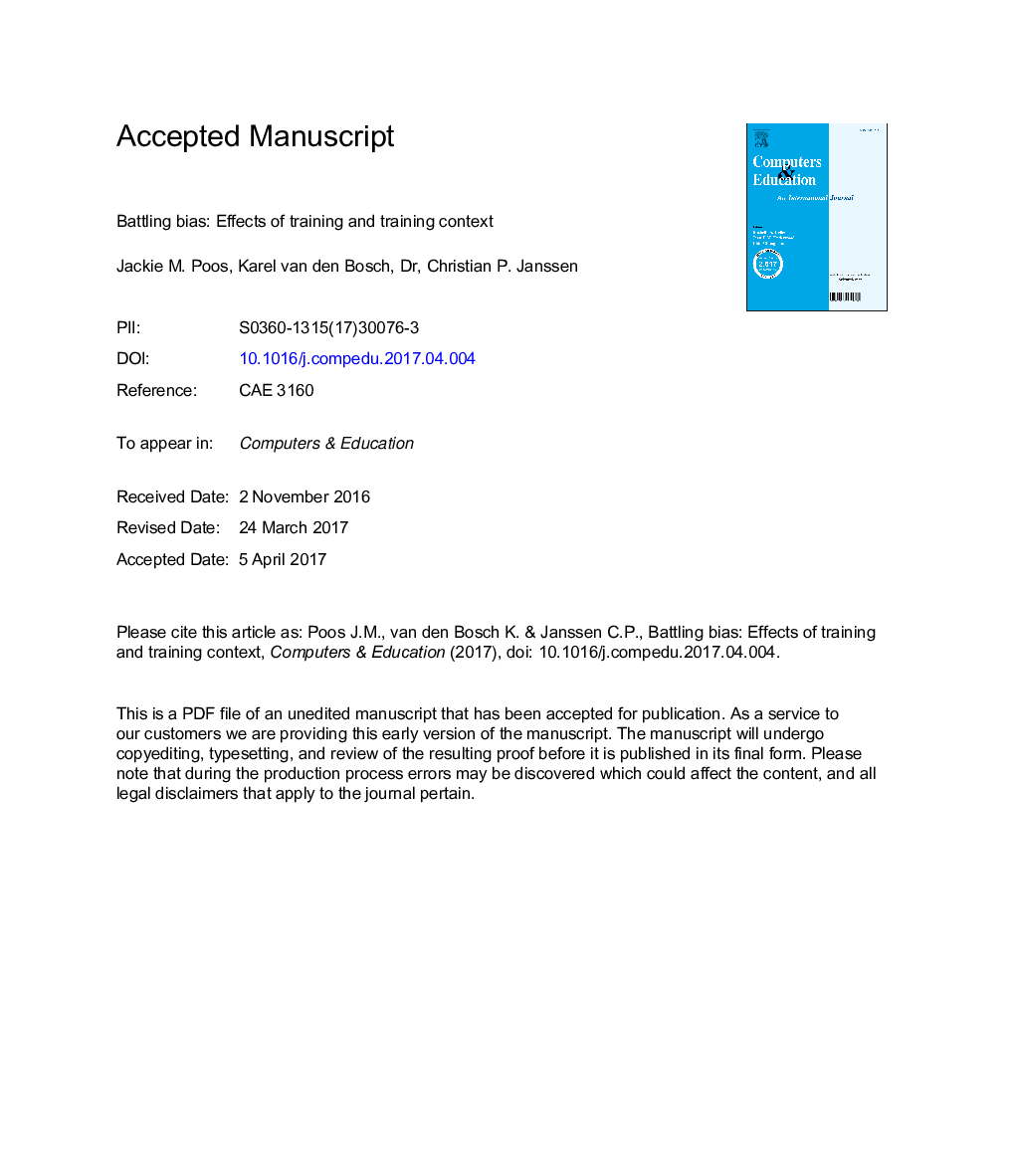| Article ID | Journal | Published Year | Pages | File Type |
|---|---|---|---|---|
| 4936836 | Computers & Education | 2017 | 44 Pages |
Abstract
This study investigates whether cognitive bias in judgment and decision making can be reduced by training, and whether the effects are affected by the nature of the training environment. Theory suggests that biases can be overcome by training in critical reflective thinking. In addition, applied research studies have suggested that game-based training is more effective at reducing bias than conventional forms of training, for example due to the interactive and dynamic nature of video-games. However, earlier studies have not always controlled systematically for the nature of the learning environment between conditions (e.g., providing different content and bias examples for instruction and training). We manipulated in a between-subjects study whether participants received critical-reflective thinking training (yes/no) and in what context they experienced this training (an interactive detective game, or a text-script of the game). Positive effects of training were found. However, the mitigating effects on bias depended upon the type of bias and when the effects were measured (near or far transfer). Surprisingly, the game group performed similar to the text-script group. This suggests that an interactive and dynamic training context (e.g., a game) is not necessarily more effective than non-dynamic contexts (e.g., a text) for bias-mitigation training.
Related Topics
Social Sciences and Humanities
Social Sciences
Education
Authors
Jackie M. Poos, Karel (Dr), Christian P. (Dr),
